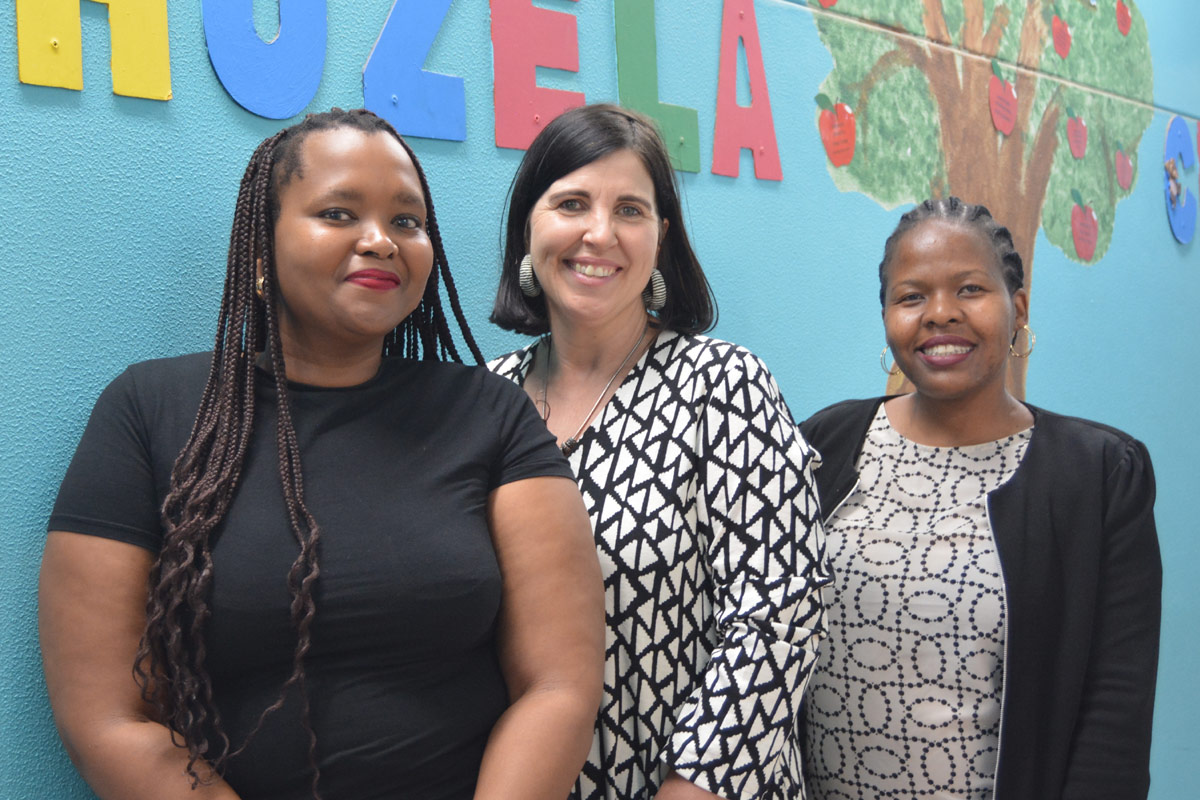SPAR helps sexual assault victims in Nelson Mandela Bay
06 March 2024

Thuthuzela Care Centre team, site manager Zimkitha Bula, prosecutor Linda le Roux and victim assistant officer Wandiswa Shwaye.
In her 30 years as a state prosecutor, Linda le Roux has seen little change in the attitude towards survivors of sexual assault.
She rarely finds instances where hijack or robbery victims are blamed for the crimes against them, yet in half of rape cases questions are asked of the victim’s character.
“The minute someone is raped the victim is asked, ‘What did you wear, why didn’t you have someone with you?’ I hardly ever see that kind of thing happening in other crimes,” she said.
“We all have houses with windows and bars, but those houses still get broken into. We don’t blame the homeowner, so why should victims feel guilty just because they are female?”
Le Roux is the National Prosecution Authority’s (NPA) representative at the Thuthuzela Care Centre at Dora Nginza Hospital in Gqeberha, where she monitors the progress of sexual assault cases moving through the court system.
Thuthuzela centres throughout the country offer survivors of rape and other sex crimes medical care, psychological support and a chance at justice. These were established to place all role-players under one roof, eradicating the need for victims to repeat their story.
The Nelson Mandela Bay branch, which receives dozens of cases each month, is a beneficiary of the annual SPAR Eastern Cape Golf Day recently held at the Port Elizabeth Golf Club.
Thanks to proceeds from the event, Le Roux and her team are aiming to beautify the centre since this aspect is not covered by departmental budgets.
Top of the list are replacing the carpet in the sitting room and acquiring a fridge for food frequently donated by SPAR EC and other civic organisations.
The family retailer was involved at a national level and they could not be more grateful for what the company did for them, Le Roux said.
“It is important that we show the people who come to us for help that we care. We work with trauma patients who need that kind of environment.
SPAR EC advertising manager Roseann Shadrach said the time for a passive response to gender-based violence (GBV) was over.
Fighting GBV was one of the company’s key pillars and assisting Thuthuzela in Gqeberha was the retailer’s way of putting words into action, she said.
“GBV can be physical, sexual or psychological abuse. It can happen to anyone, women, men or children, and is never acceptable.
“If you are a victim or if you see someone being abused, know that you are not alone in this fight.”
In her role at the multi-departmental centre, Le Roux offers prosecutorial guidance to ensure cases are ready for court.
“I have a database dating back to 2010 of all rape cases in the area from PE to Kinkelbos. It’s a heck of a lot of cases.”
Le Roux said it was not only about winning cases.
“We are here for that person (who has been attacked). We want them to not only survive but be stronger on the other side of their ordeal.”
As much as the stigma attached to sexual assault victims rankled, she believed attitudes could change as looking for reasons to blame the victim “started somewhere” and people had the power to alter their behaviour.
“If we say, ‘This is not what we want’, we change our environment. It’s amazing to see how people can overcome being victims to become survivors.”
All sexual assault complainants are referred to a centre once a docket has been opened with the local police. In cases where a sex crime is suspected, hospitals and clinics also refer suspected victims.
From the moment a person arrives, the different agencies work in concert to address every aspect of the assault.
“If a complainant comes to the centre and is emotional, a trained professional is tasked with emotional containment and will comfort her.”
A medical exam, where exhibits are collected, follows.
“Our doctors know exactly what to do. They are trained in forensics, so they know how to testify when cases come before court.”
All cases are linked with dedicated courts and the regional and high courts dealing with these crimes.
A police officer, two NPA representatives, medical practitioner, first-responder and social worker are always on call.
“I consider what we do a passion, not a job,” Le Roux described the 24-hour-a-day operation.
She emphasised that these crimes influenced everyone and that it was every single person’s responsibility to keep communities healthy by advocating against them.”
Last year SPAR honoured the lives of 52 people, mostly women and girls, who had lost their lives in GBV attacks.